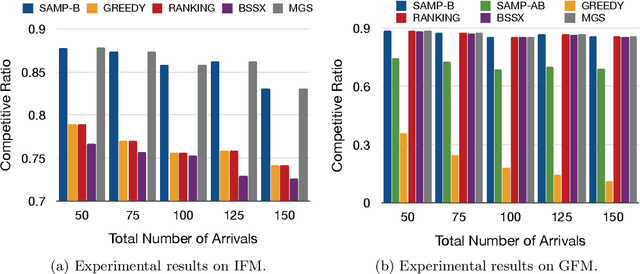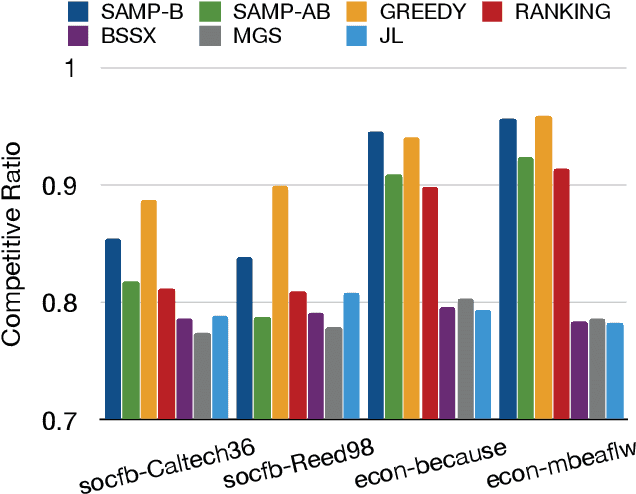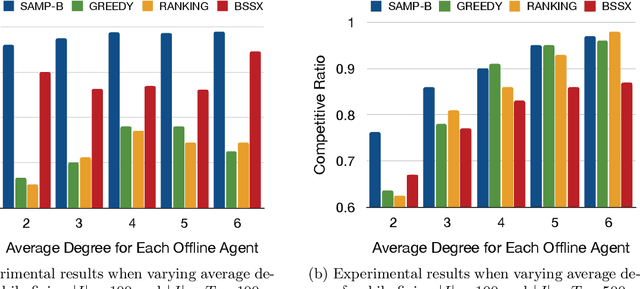Fairness Maximization among Offline Agents in Online-Matching Markets
Paper and Code
Sep 26, 2021



Matching markets involve heterogeneous agents (typically from two parties) who are paired for mutual benefit. During the last decade, matching markets have emerged and grown rapidly through the medium of the Internet. They have evolved into a new format, called Online Matching Markets (OMMs), with examples ranging from crowdsourcing to online recommendations to ridesharing. There are two features distinguishing OMMs from traditional matching markets. One is the dynamic arrival of one side of the market: we refer to these as online agents while the rest are offline agents. Examples of online and offline agents include keywords (online) and sponsors (offline) in Google Advertising; workers (online) and tasks (offline) in Amazon Mechanical Turk (AMT); riders (online) and drivers (offline when restricted to a short time window) in ridesharing. The second distinguishing feature of OMMs is the real-time decision-making element. However, studies have shown that the algorithms making decisions in these OMMs leave disparities in the match rates of offline agents. For example, tasks in neighborhoods of low socioeconomic status rarely get matched to gig workers, and drivers of certain races/genders get discriminated against in matchmaking. In this paper, we propose online matching algorithms which optimize for either individual or group-level fairness among offline agents in OMMs. We present two linear-programming (LP) based sampling algorithms, which achieve online competitive ratios at least 0.725 for individual fairness maximization (IFM) and 0.719 for group fairness maximization (GFM), respectively. We conduct extensive numerical experiments and results show that our boosted version of sampling algorithms are not only conceptually easy to implement but also highly effective in practical instances of fairness-maximization-related models.
 Add to Chrome
Add to Chrome Add to Firefox
Add to Firefox Add to Edge
Add to Edge